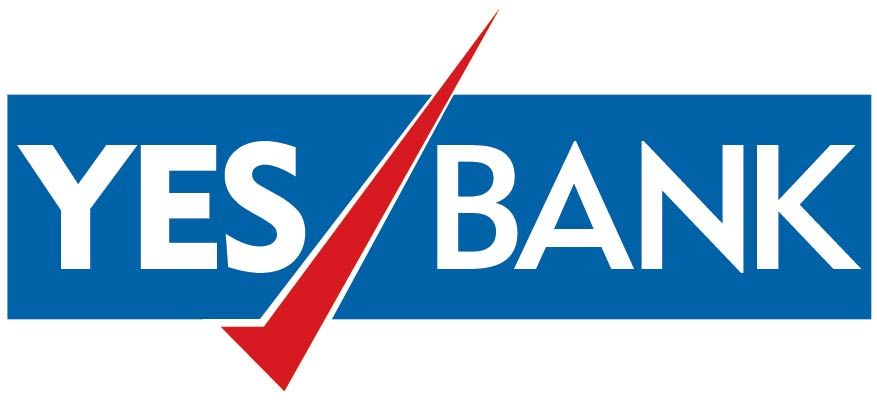
YES Bank
View Brand PublisherHow can MSMEs rely on banks for growth? Experts at this roundtable weigh in
As India battles the impact of COVID-19, its economy has demonstrated resilience by overcoming a recession phase that it had entered a couple of quarters ago. The recent quarterly GDP data showed growth returning to the positive terrain after contracting by about 23 percent in the first quarter of this fiscal.
India’s micro, small, and medium enterprises (MSMEs) are witnessing some rebound from their dire situation. The development is significant, given its near one-third contribution to the country’s GDP along with employing millions of people.
Much of this progress was possible because of rapid digital adoption or upgradation, pivoting to differential products, and relying on the right financial partners. These were some of the key takeaways from a roundtable discussion of experts from the industry, moderated by Business Editor Vishal Krishna. The panellists consisted of healthcare e-commerce firms, B2B marketplaces, leading e-commerce websites and SaaS providers that help businesses go online, among others.
Here’s a look at five such highlights from the session.
Better awareness of products and services is a must
With the economy on track to recovery, the spotlight was on exporters to bring in better forex income. The panellists highlighted the need to have better trading and forex mechanisms, both in terms of products and policy support from financial institutions and governments. However, they also said awareness should be raised among MSMEs of the different financial products or services that could help them meet their working capital needs.
With the aim of empowering MSMEs, , one of India’s largest private banks, recently unveiled a comprehensive and curated proposition - YES MSME early this year. A nationwide campaign was also launched to showcase various MSME Offerings across sectors and how these curated offerings enable the growth of MSMEs.
“Existing platforms also offer unique financial services such as invoice discounting etc. We work with several startups and many among them aren’t aware of these things. There is a lack of awareness about it,” said Mangesh Panditrao, Co-founder and CEO of .
Reliable and convenient access to funds is key
As such, the liquidity situation among MSMEs is known to be tight and the pandemic further affected the capital situation. One of the panellists, Sandeep Chhetri, Tradeindia’s COO, said it was critical that MSMEs had access to a credit facility.
Another way of gaining access to money was having the right funding platforms too. Umesh Uttamchandani, Co-founder of suggested having a funding exchange platform on the lines of the BSE’s Startups Platform. “With India drawing more money from foreign investors, even foreign institutional investors (FIIs) can look to invest in MSMEs,” he said.
Forex hedging is as important as digital adoption
With exports taking centre stage to carry forward India’s next set of growth, worries about forex losses and trading mechanisms were also discussed. The experts highlighted the right forex products, mechanisms and strategies by banks that are available for MSMEs, and said companies must have a clearer idea about their forex plans.
“MSMEs need to think very clearly what the forex strategy should be. How can you hedge your risk? With the global environment being so volatile, hedging becomes very important,” said Siddharth Madhusudhan, Chief Strategy Officer of . He was referring to lending products by banks that offer you an option to borrow in forex terms from banks without having to digest the impact of a volatile currency.
While speaking about the challenges faced by MSMEs because of forex loans, Ravi Kant Sharma, Founder and CEO, Sastasundar.com said the risk management should be done by MSMEs themselves.
The go-digital approach
The panellists almost unanimously agreed that companies that undertook digital adoption or upgraded their existing digital infrastructure were able to successfully manoeuvre past the impact of the healthcare crisis on their businesses and keep them running.
Being one of India’s top banks, YES BANK’s offerings go beyond just business banking. It has curated partnerships with tech solution providers, with offerings such as Assisted Tax Filing with Cleartax, Accounting Book Keeping with Books, Payment Solutions through Cashfree and more. Moreover, it has also simplified banking with a single interface YES MSME app. With this, MSMEs can undertake banking transactions like Salary Payments, Group Payments, GST Payments and more at the touch of a button.
“Digital infrastructure helped the sector a lot. Founders and team members have now started adopting digital initiatives that have helped the sector come back on its feet. All these are showcasing the results for MSMEs that went digital early on,” said Umesh at the roundtable.
The government’s initiatives of production-linked incentives (PLI), Skill India and bank-supported mechanisms have also aided some recovery in the space, said Chaitanya Kumar, Co-founder and strategic director of IndustryARC.
Widening scope of demand
While demand for several goods and services diminished due to the economic pain, Mangesh pointed out how patterns of demand had undergone changes. “Demand moved to sectors such as healthcare, wellness, supplements and gourmet food, among others. The ability to benefit from this shift was with brands that had already invested and built digital channels.”
The trend also indicated a shift in consumer behaviour, with demand largely shifting from offline to online. “We have seen an increase of 40 percent in demand on our platform,” Sandeep of TradeIndia said, adding that SMEs received access to a global audience through his platform and helped them widen the geographies from which they received orders.







